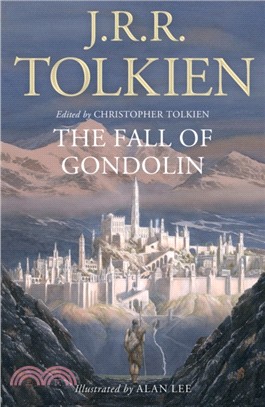定價
:NT$ 5819 元若需訂購本書,請電洽客服 02-25006600[分機130、131]。
商品簡介
相關商品
商品簡介
Content-Based Image Classification: Efficient Machine Learning Using Robust Feature Extraction Techniques is a comprehensive guide to research with invaluable image data. Social Science Research Network has revealed that 65% of people are visual learners. Research data provided by Hyerle (2000) has clearly shown 90% of information in the human brain is visual.
Thus, it is no wonder that visual information processing in the brain is 60,000 times faster than text-based information (3M Corporation, 2001). Recently, we have witnessed a significant surge in conversing with images due to the popularity of social networking platforms. The other reason for embracing usage of image data is the mass availability of high-resolution cellphone cameras.
Wide usage of image data in diversified application areas including medical science, media, sports, remote sensing, and so on, has spurred the need for further research in optimizing archival, maintenance, and retrieval of appropriate image content to leverage data-driven decision-making. This book demonstrates several techniques of image processing to represent image data in a desired format for information identification. It discusses the application of machine learning and deep learning for identifying and categorizing appropriate image data helpful in designing automated decision support systems.
The book offers comprehensive coverage of the most essential topics, including:Image feature extraction with novel handcrafted techniques (traditional feature extraction)Image feature extraction with automated techniques (representation learning with CNNs)Significance of fusion-based approaches in enhancing classification accuracyMATLAB (R) codes for implementing the techniquesUse of the Open Access data mining tool WEKA for multiple tasksThe book is intended for budding researchers, technocrats, engineering students, and machine learning/deep learning enthusiasts who are willing to start their computer vision journey with content-based image recognition. The readers will get a clear picture of the essentials for transforming the image data into valuable means for insight generation. Readers will learn coding techniques necessary to propose novel mechanisms and disruptive approaches.
The WEKA guide provided is beneficial for those uncomfortable coding for machine learning algorithms. The WEKA tool assists the learner in implementing machine learning algorithms with the click of a button. Thus, this book will be a stepping-stone for your machine learning journey.
Please visit the author's website for any further guidance at https://www.rikdas.com/
Thus, it is no wonder that visual information processing in the brain is 60,000 times faster than text-based information (3M Corporation, 2001). Recently, we have witnessed a significant surge in conversing with images due to the popularity of social networking platforms. The other reason for embracing usage of image data is the mass availability of high-resolution cellphone cameras.
Wide usage of image data in diversified application areas including medical science, media, sports, remote sensing, and so on, has spurred the need for further research in optimizing archival, maintenance, and retrieval of appropriate image content to leverage data-driven decision-making. This book demonstrates several techniques of image processing to represent image data in a desired format for information identification. It discusses the application of machine learning and deep learning for identifying and categorizing appropriate image data helpful in designing automated decision support systems.
The book offers comprehensive coverage of the most essential topics, including:Image feature extraction with novel handcrafted techniques (traditional feature extraction)Image feature extraction with automated techniques (representation learning with CNNs)Significance of fusion-based approaches in enhancing classification accuracyMATLAB (R) codes for implementing the techniquesUse of the Open Access data mining tool WEKA for multiple tasksThe book is intended for budding researchers, technocrats, engineering students, and machine learning/deep learning enthusiasts who are willing to start their computer vision journey with content-based image recognition. The readers will get a clear picture of the essentials for transforming the image data into valuable means for insight generation. Readers will learn coding techniques necessary to propose novel mechanisms and disruptive approaches.
The WEKA guide provided is beneficial for those uncomfortable coding for machine learning algorithms. The WEKA tool assists the learner in implementing machine learning algorithms with the click of a button. Thus, this book will be a stepping-stone for your machine learning journey.
Please visit the author's website for any further guidance at https://www.rikdas.com/
主題書展
更多
主題書展
更多書展今日66折
您曾經瀏覽過的商品
購物須知
外文書商品之書封,為出版社提供之樣本。實際出貨商品,以出版社所提供之現有版本為主。部份書籍,因出版社供應狀況特殊,匯率將依實際狀況做調整。
無庫存之商品,在您完成訂單程序之後,將以空運的方式為你下單調貨。為了縮短等待的時間,建議您將外文書與其他商品分開下單,以獲得最快的取貨速度,平均調貨時間為1~2個月。
為了保護您的權益,「三民網路書店」提供會員七日商品鑑賞期(收到商品為起始日)。
若要辦理退貨,請在商品鑑賞期內寄回,且商品必須是全新狀態與完整包裝(商品、附件、發票、隨貨贈品等)否則恕不接受退貨。
























